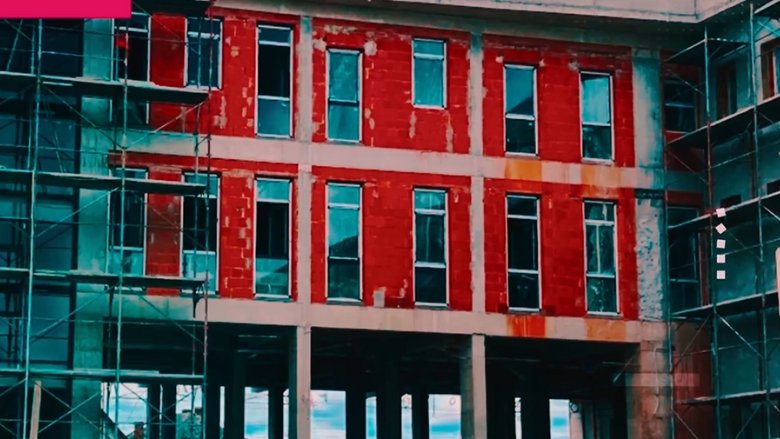In Romania, more than 75% of the population lives in areas susceptible to earthquakes, with Bucharest being the most earthquake-prone capital in the European Union. Over the last 100 years, 13 earthquakes resulted in 2,630 fatalities and affected more than 400,000 people, with the country’s 1977 earthquake alone causing damages exceeding $2 billion.
Should that same earthquake happen today, it is estimated that between 700 and 4,500 lives could be lost depending on the timing and location, while another 250,000 people could become homeless for months or even years. Likely, the numbers would be much higher, as many of the damaged buildings in the 1977 earthquake were never fully repaired.
It is not just homes and businesses that are exposed to the risk of collapse or damage in case of a large earthquake, but also fire stations. Most fire stations in Romania were built 50-100 years ago before modern building or seismic codes existed, and most have never received major renovations or retrofitting. This means that, in the worst-case scenario, first responders would be among the first casualties, significantly reducing their ability to help others.
World Bank Support
In response to these risks, Romania has developed a firefighting and emergency capacity that has been pivotal to managing crises within the country, but also to support others, such as during the response to the summer wildfires in Greece or in the aftermath of the February 2023 Türkiye earthquakes.
Furthermore, the Government of Romania has identified elements of critical emergency infrastructure, such as fire stations, that are paramount to the disaster response and preparedness system yet are likely to be severely damaged or even destroyed in an earthquake.
Under the Strengthening Disaster Risk Management in Romania, the World Bank is providing financial support to the Ministry of Internal Affairs in the amount of 142 million Euro to retrofit or reconstruct 35 fire stations identified as paramount to the country’s disaster response and preparedness system, and to strengthen institutional capacity. The project is being implemented by the General Inspectorate of Emergency Situations and coordinated by the Department of Emergency Situations.
Once completed by 2027, the retrofitted fire stations and emergency services centers will not only be safer and more resilient, but also energy efficient and universally accessible. They will harness renewable energy, will feature modern designs and spaces aligned with operational needs, thereby reducing these facilities’ carbon footprint. Moreover, every building will have bathrooms, dormitory and sanitary facilities for both women and men—a feature only now being incorporated for the first time into fire stations in Romania, given that the existing ones were built before women used to participate in emergency and disaster response.
With these standards, all members of the community will have safe access to these fire stations, while the utilities of the retrofitted facilities will make them more flexible and adaptable to communities’ future needs.
The 35 fire stations rehabilitated through the Project, which serve approximately 25% of Romania’s population, will ensure the safety of some 1,000 firefighters and paramedics. These facilities will transform Romania into a world leader in terms of near zero-energy and disaster-resistant fire stations.
Through additional support from the Global Facility for Disaster Reduction and Recovery administered by the World Bank, the Government of Romania benefitted from complementary technical assistance, for example, in developing and piloting training for first responders to better support people with disabilities in emergency situations.
Results
Tangible results planned with some already delivered through the partnership between the World Bank and the Department of Emergency Situations and General Inspectorate of Emergency Situations include:
- The first fire station was completed in 2023 and is now fully operational. Located in Mizil, Prahova County, 83 firefighters, paramedics and administrative staff are now working in a safer and more resilient building. More than 120,000 people in Mizil and surrounding areas are better served and protected because of this.
- Construction is well underway for a further four fire stations in the localities of Carei, Tecuci, Obor, and Calarasi. These are expected to be finalized by June 2024 and will host almost 550 first responders. All 35 fire stations are to be completed through the Project by 2027.
- The Project has led to increased capacity for the General Inspectorate of Emergency Situations which has developed expertise in constructing zero-energy, disaster-resistant fire stations. This expertise will be leveraged for building more fire stations in rural areas through European Union funds, creating resilient and sustainable emergency response buildings across the country.
- A pilot on inclusive disaster risk management, where first responders benefited from training on the needs of people with disabilities in emergency response, was successfully implemented and will be now scaled up at the national level.
This project is part of broader technical and financial support of the World Bank in Romania that aims to improve the country’s resilience, preparedness, and response to disasters. Other World Bank investments are targeted at critical buildings of the Romanian Police and Gendarmerie. Facilities through those sets of investments will be energy-efficient and disaster-resilient, while creating safe and inclusive spaces for women, as well as accessible facilities for persons with disabilities.
Romania’s progress in recent years in boosting its emergency response is noteworthy and can inspire similar efforts in other countries. The World Bank and the Romanian General Inspectorate of Emergency Situations are working to share critical knowledge in hope of inspiring many more decision-makers in and outside of Romania to invest in resilience to shocks and, therefore, in the safety and prosperity of citizens. A Regional Knowledge Exchange event is hosted by Romania between September 13-15, 2023, convening relevant government representatives in six countries—Armenia, Croatia, Georgia, Moldova, Tajikistan, and Uzbekistan—to learn from Romania’s experience in investing in resilient, sustainable, and modern emergency response unit buildings.

